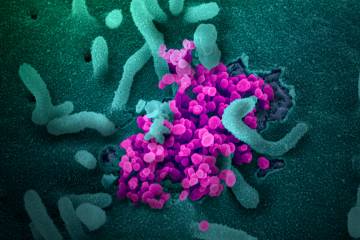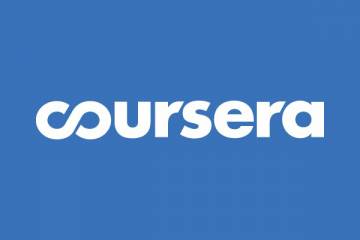Johns Hopkins University has launched a free online course for the general public about COVID-19 featuring experts from across the university—including those on the front lines of research and treatment—sharing the latest insights and evidence about the disease, its spread, and ways to stay healthy.
Published on the Johns Hopkins Coronavirus Resource Center website as the outbreak develops, the course, titled Understanding the COVID-19 Pandemic, is broken into a series of lesson modules. The first module draws from the expertise of Claire Marie Filone, a virologist at the Johns Hopkins Applied Physics Laboratory, whose research focuses on the behaviors of dangerous viruses when they infect humans and animals. The second module, released Sunday, features Jason Farley, an infectious disease-trained nurse epidemiologist from the Johns Hopkins School of Nursing, who discusses diagnosing, treating, and preventing COVID-19.
"We hope that by listening to and engaging with the course modules, the general public will find many aspects of the COVID-19 pandemic demystified," says Lainie Rutkow, a professor of health policy and management at the Bloomberg School of Public Health and the host and driving force of the series. "As the modules roll out, you'll see additional expertise coming in from other divisions of the university. It's been a wonderful collaboration, one that obviously came together very quickly and shows the versatility of these different teams. We've been able to put together a course that not only features entirely original content but was also fully produced after the imposition of social distancing measures."
Rutkow envisioned the course content as a series of concentric circles of information about the coronavirus outbreak, beginning with the nature of the virus itself and expanding outward to discuss broad societal impacts of the disease as new lesson modules are released. Each module contains a brief introduction video and a video lesson, followed by a recap of the lesson's key takeaways and several quizzes and interactive activities to check that the viewer has understood the material.
Those latter course components are organized by Donna Schnupp and Kelly Cooney, instructional designers at the Johns Hopkins School of Education. As experts in translating instructional materials for the digital sphere, Cooney and Schnupp are working to translate the key takeaways and so-called "Checks for Understanding" activities for a broad public audience.
"As different as this course is from our usual work of developing semester-long courses, the components of the modules are very similar," says Schnupp.
Early results suggest the course is a popular and engaging resource for the public. Since launching on April 12, the collective videos in the course have been viewed more than 10,000 times and the first module has a 64% completion rate—high for online courses of this kind, says Cooney. The project has quickly become one of the highlights of her work week, even as her workload has increased along with the demand for online course content.
"Our experts have done a phenomenal job at making the material clear and understandable—what we're presenting online is not only understandable but also true to the science," Cooney says. "Personally, I'm happiest when I'm learning something new, and so for me, I love getting to interact with all these different people. It's really taking collaboration to a whole new level."
Footage for the modules is recorded over Zoom by university producers Dave Schmelick and Patrick Ridgely and coordinated and produced by Len Turner, director of the university's video, photography, and design teams. Webcams and computer microphones have temporarily replaced the team's professional-grade recording equipment, and they sometimes find themselves at the mercy of slow internet connections.
"Our colleagues—Johns Hopkins doctors, nurses, and many others—are the ones on the front lines of this pandemic," Turner says. "We hope in some small way to support their work by offering the public information about the virus that's engaging and easy to understand."
Adds Ridgely: "It gives a sense of grounding and mission to the workday."
Posted in Health, University News
Tagged coronavirus, covid-19









